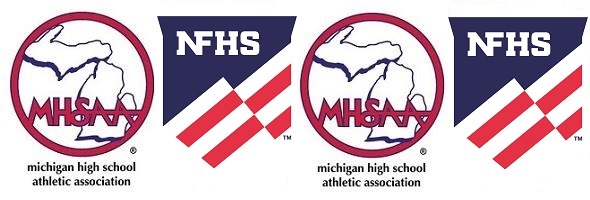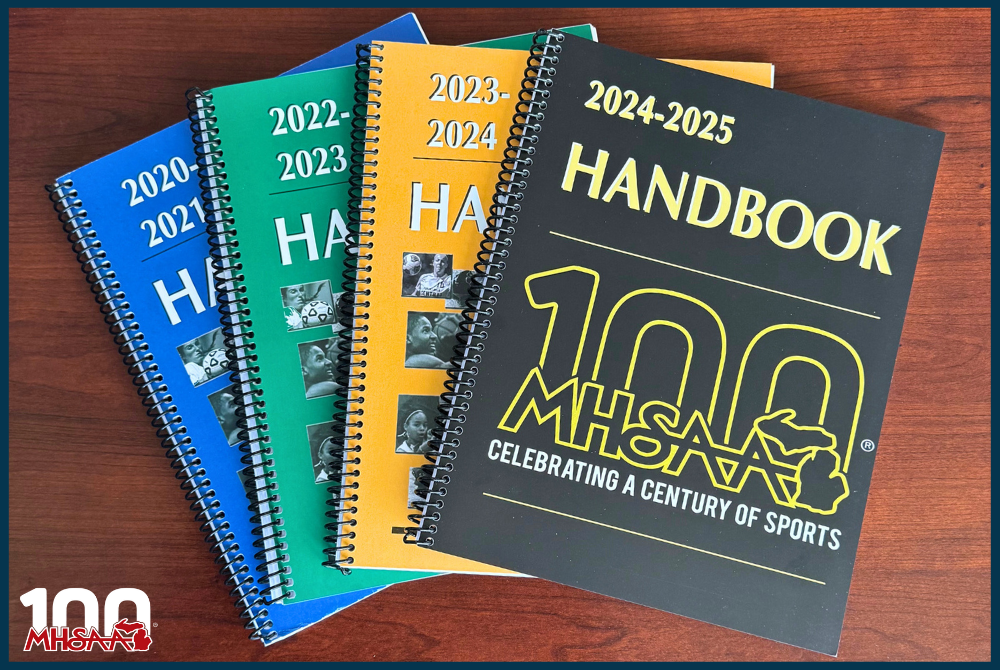
Adult Fans: HS Sports' Biggest Challenge
August 27, 2019


By Karissa Niehoff, NFHS Executive Director
and Mark Uyl, MHSAA Executive Director
Inappropriate adult behavior at high school athletic events in Michigan has reached epidemic proportion.
When more than 2,000 high school athletic directors were asked in a recent national survey what they like least about their job, 62.3 percent said it was “dealing with aggressive parents and adult fans.”
And the men and women who wear the black and white stripes agree. In fact, almost 80 percent of officials quit after the first two years on the job, and unruly parents are cited as the reason why. As a result, there is a growing shortage of high school officials here in Michigan, and in some sports like wrestling, swimming & diving and track & field, the shortage is severe. No officials means no more games.
If you are a parent attending a high school athletic event this fall, you can help by following these six guidelines:
1. Act Your Age. You are, after all, an adult. Act in a way that makes your family and school proud.
2. Don’t Live Your Life Vicariously Through Your Children. High school sports are for them, not you. Your family’s reputation is not determined by how well your children perform on the field of play.
3. Let Your Children Talk to the Coach Instead of You Doing It for Them. High school athletes learn how to become more confident, independent and capable — but only when their parents don’t jump in and solve their problems for them.
4. Stay in Your Lane. No coaching or officiating from the sidelines. Your role is to be a responsible, supportive parent — not a coach or official.
5. Remember, Participating in a High School Sport Is Not About Getting a College Scholarship. According to the NCAA, only about two percent of all high school athletes are awarded a sports scholarship, and the total value of the scholarship is only about $18,000.
6. Make Sure Your Children Know You Love Watching Them Play. Do not critique your child’s performance on the car ride home. Participating in high school sports is about character development, learning and having fun — not winning and losing.
Purchasing a ticket to a high school athletic event does not give you the right to be rude, disrespectful or verbally abusive. Cheer loud and be proud, but be responsible and respectful. The future of high school sports in Michigan is dependent on you.
The Michigan High School Athletic Association (MHSAA) is one of 51 members of the National Federation of State High School Associations (NFHS).

Century of School Sports: Why Does the MHSAA Have These Rules?
By
Geoff Kimmerly
MHSAA.com senior editor
September 18, 2024
MHSAA administrators are two trips into their annual seven-stop fall tour that has become a tradition during nearly half of the Association’s “Century of School Sports” – and this year, a focus has been on answering a key question at the heart of educational athletics since long before the MHSAA was formed during the 1924-25 school year.
The MHSAA’s Update meeting series is in its 47th year and includes half-day conferences in seven locations – generally in the Kalamazoo, Metro Detroit, Grand Rapids, Saginaw, northern Lower Peninsula and mid-Michigan areas, and at Northern Michigan University in Marquette. The six Lower Peninsula sessions begin with an athletic director in-service during which MHSAA assistant directors explain recent rules changes and discuss challenges our administrators face on a daily basis (with Upper Peninsula athletic directors participating in a similar in-service during the spring).
Those in-services are followed by a session with executive director Mark Uyl, who speaks to athletic directors, superintendents, principals and school board members on a variety of topics including the MHSAA’s current objectives and ideas for the future, while also reinforcing the longstanding values that remain the bedrock of our daily work.
And that leads to the question he’s presenting across the state this fall:
Why does the MHSAA have these rules?
Frankly, the answer goes back to the beginning of school sports in Michigan – all the way back to 1895, when the first MHSAA predecessor organization was formed.
The first MHSAA Representative Council president Lewis L. Forsythe explained in his book “Athletics in Michigan High Schools – The First Hundred Years” how regulations always have been necessary:
“Eligibility rules are a necessity in interscholastic competition. It was common acknowledgement of this fact that led to the first State inter-school organization in 1895. The rules at first were few, simple and liberal. But with the passing of the years they came to be more numerous, more complex, and more restrictive, again through common acknowledgment of desirability if not of necessity.”
That necessity – and the reasoning behind it – has not changed.
Two main points explain why rules are absolutely imperative for educational athletics to thrive.
► 1. Participation – through providing as many opportunities as possible for students to play – has been the mission of school sports since their start. Rules contribute to the value of participation.
If there are requirements for children to participate in athletics – for example, an academic standard or rules that dissuade students from switching schools every year – then school sports programs mean more to all involved.
If we raise the bar, raise the standards of eligibility and conduct, we raise the value of our school sports programs. If we lower the bar, we lower the value of being part of school sports – because without rules, contest results are meaningless, and the value of participating is diminished.
► 2. We have rules where the stakes are higher, and agreement is lower – because where the stakes are highest, there is the greatest tendency for some people to try to gain an unfair advantage, and the greatest need for rules to curb possible dishonest activity.
This statement goes to the heart of the history, rationale and application of MHSAA rules. Obviously and simply put, school sports mean a lot to those who take part, and that significance is high enough to stoke disagreement – and we need rules to govern those disagreements. We have the most rules for high school sports, where championships are at stake and the possibility of disagreement is greatest.
***
Finally – and perhaps providing the strongest reinforcement of the two points above – is this:
Schools choose to make MHSAA rules their own.
Quite literally, school districts vote annually to be part of the MHSAA – and confirming this voluntary membership comes with the requirement to follow all MHSAA rules.
When schools challenge our rules, they literally are seeking to break the rules they already have committed to uphold.
These rules, and this commitment, are the strength of our organization across 752 member high schools and several hundred more middle schools and junior high schools. They have been constructed on a century of precedents and after considerations by representatives of those same member schools – representatives those schools have voted to elect every school year during the MHSAA’s history.
Previous "Century of School Sports" Spotlights
Sept. 10: Special Medals, Patches to Commemorate Special Year - Read
Sept. 4: Fall to Finish with 50th Football Championships - Read
Aug. 28: Let the Celebration Begin - Read

